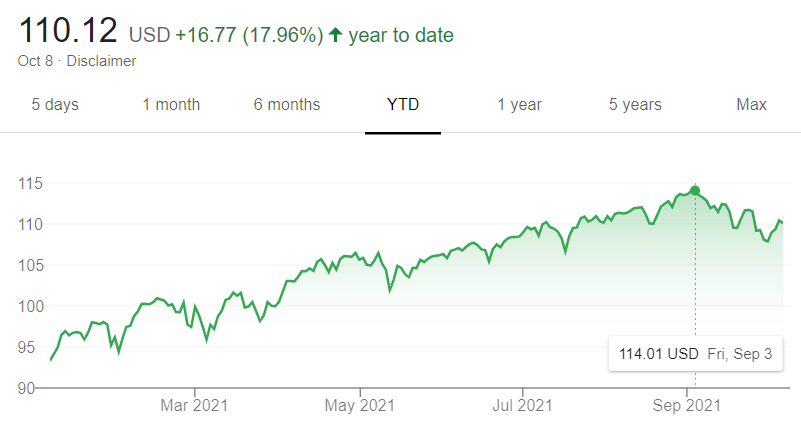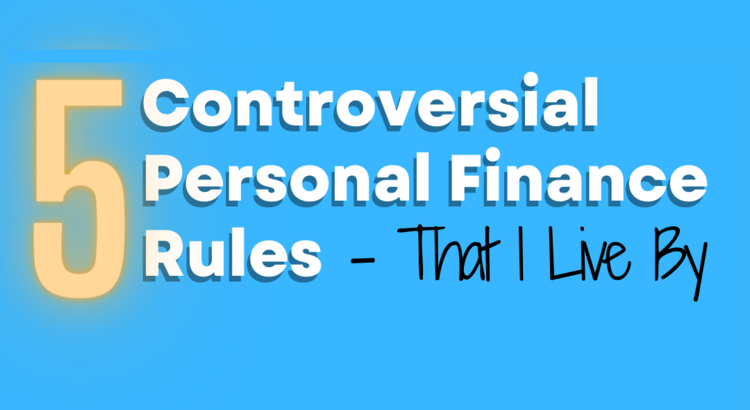Most good personal finance advice is pretty mundane. All you really need to do is save money and invest early and often. However, just like the money myths we recently covered some common personal finance practices, though seemingly reasonable, cost more money than they earn you.
Here are some personal finance rules that I live by that you probably haven’t seen before
1. Stop trying to get higher tax refunds
When hiring a professional to prepare your personal taxes, most people consider the most important thing to be getting the highest refund. What’s worse, many people believe that the more they pay for tax preparation, the higher refund they can get. However, for most of us, getting a high refund is not the result of expert tax preparers uncovering secret tax loopholes, it’s the consequence of over-withholding. The truth is that when you owe the Internal Revenue Service tax money throughout a tax year you are essentially receiving an interest-free loan. Conversely, when you receive a refund you are furnishing an interest free loan to the IRS.
Of course that’s not to say that you should get into the habit of owing the IRS large sums of money and definitely not across more than one tax year. Doing that is always a costly, losing proposition. However, you can owe the IRS up to $999 without penalty and without being required to pay “estimated taxes.” Estimated taxes are payments made throughout the year, usually quarterly when a taxpayer expects to owe $1,000 or more after withholding and credits etc. If you do choose to pay estimated taxes, you can get away with owing even more penalty free so long as you cover it all during the tax year and never miss a scheduled payment.
Related: 5 Steps to Resolving Tax Debt (and When You Need Help)
2. Don’t prioritize paying off your home mortgage
Paying off your home mortgage probably feels incredibly liberating. Years of effort have finally paid off leaving you with a huge increase in cash-flow. And that’s certainly true, especially if you don’t take on another loan but that doesn’t mean you should be paying off your house faster than the amortization schedule. Especially in a low interest environment, paying off your home faster than normal actually loses you money. How? Through something known as “opportunity loss” – When you use your extra savings to pay down a low-interest mortgage your are losing the chance to earn a much better return through risk-adjusted investments.
Related: 5 Money Hacks That Don’t Save You Money (And 5 That Do)
3. Use credit cards as much as possible
I can’t tell you how many times I’ve heard the advice to, “cut up your credit cards.” I guess if you have a bad record with credit cards or are generally undisciplined, not using credit cards might keep you from overextending yourself financially. For everyone else, however, you make a lot more money using credit cards for two reasons: 1. Using credit cards helps you establish good credit which in turn lowers your interest rate on loans and increases the credit you qualify for and 2. Loyalty rewards points can be super-valuable. As long as you pay off the balance monthly and if you take advantage of bonuses, you can amass a ton of points fairly quickly. American Express and Chase loyalty points are particularly valuable but there are other good programs as well as good cash-back cards.
Here’s how my wife and I earned over 350,000 Chase Ultimate Rewards points, worth at least $3,500.
- First we waiting for the best bonus available. At the time, this was a 40,000 bonus for using Chase Sapphire Preferred. We reviewed the terms carefully, which stated that we had to spend $3,000 within three months, points accrued differently depending on their category and that the card has an annual fee of $95.00 but that the first year fee would be waived.
- I applied for the card and my wife became an authorized signer, earning us an extra 10,000 points
- We put all of our bills onto our new card and earned the 50,000 points offered plus the points we earned for making the transactions.
- We waited again for the best offer on a Chase Sapphire Preferred to come around (remember, only I applied for the card, my wife has just been a co-signer with her own card.
- My wife applied for a Chase Sapphire Preferred card during a 100,000 point promotion, earned for spending $4,000 in 90 days. There was no fee waiver or bonus for adding a co-signer this time.
- We changed all of our bills to that card, earned the bonus and later cancelled the card after paying the annual fee (the points are typically worth 1-4 cents a piece depending on how you spend them.
4. Buy stocks primarily during market corrections
If you read the Valuist article, How to Invest When the Stock Market Crashes, then this will be familiar to you. Though for most investors the wisest course of action is to “dollar cost average” your investments, if you are an index fund investor, it can also make sense to time your buys with market corrections.

With a total stock market index fund like VTSAX, you don’t need to know advanced stock analysis to time an investment, you just have to wait for a correction. This works well with ETFs which you can trade intra-day, but even though you don’t know the price per share of a mutual fund until the market closes, total stock market funds invariably dip for several days, several times a month. This gives you ample time to buy at less than peak prices, so long as you’re not avoiding investing altogether to wait for a crash. Of course, over a long enough period the actually price you are investing at becomes less and less meaningful, because the power of compounding interest is a powerful thing. However, if you consistently and aggressively invest in stocks during major corrections you can certainly increase your total rate of return without added equity risk.
With long-term investments like my retirement portfolio I predetermine a total investment amount and make sure to be invested in accordance with my chosen asset allocation before the end of the year. Then, I just wait for big corrections, hoping for a market will crash to pick up my funds at deep discounts. The brokerage part of my investment portfolio only has stocks and cash so that I can deploy funds quickly during corrections and crashes. The cash held in a brokerage account also earns more on average than a savings account so I also use my Roth IRA as a secondary emergency fund (you can withdraw your contributions tax and penalty free because you already paid tax on them).
5. Never get laid off, get fired
Okay this one might be the most controversial, for a personal finance blog anyways. Despite what you might think about your chances of being rehired, or your ability to qualify for unemployment, unless you are fired for being incompetent or negligent or something, getting fired puts you in a better position than getting laid off.
Most sources (all the I could find) suggest the opposite:
When an employee is laid off, it typically has nothing to do with the employee’s personal performance.
TheBalanceCareers
But the truth is when you get laid off it often has a lot to do with personal performance. Not necessarily how good you are at your job or how good of an employee you are, but it’s often a reflection of how much your position is valued. How many times does the CEO or CFO get laid off? Not often, they typically add too much value and have demonstrated track records of success to get into those positions. But they can and do get fired.
That’s not to say that valuable employees aren’t sometimes laid off. Even skilled workers get downsized when entire departments are shuttered and that can happen for any number of reasons. However, I am suggesting that you can avoid most layoffs by developing skills that can’t be easily replicated or outsourced, and by demonstrating value across a number of departments. Not to mention being personable, which might have as much to do with your success as your work product. In my career I’ve strived to specialize in highly valued fields, not out of a sense of preservation but more because I enjoy developing new skills. In high school I coded and designing websites, mostly for friends and family, then in college I became a private piano instructor, after college I got into the highly specialized and horrific world of resolving IRS tax liabilities and now I manage unique tax situations and filings for a niche investment industry as well as very specialized accounting.


